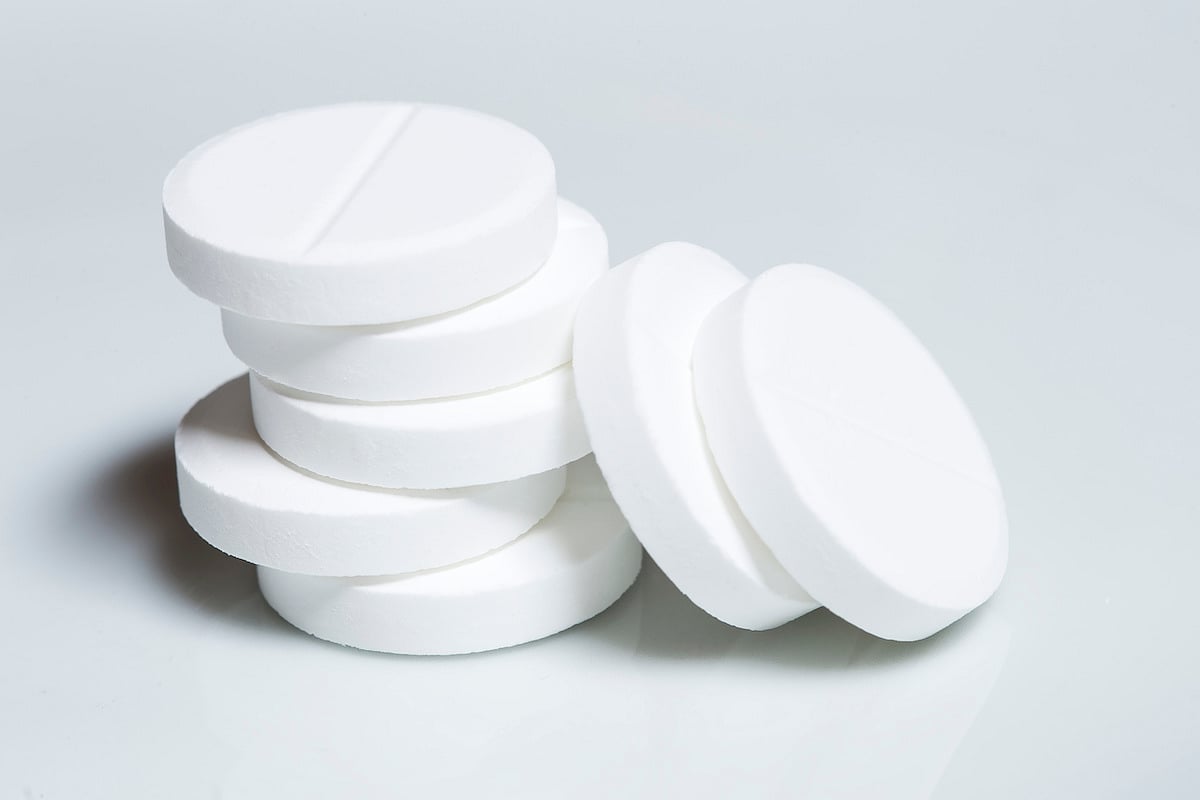Get Healthy!

- Ernie Mundell
- Posted August 1, 2024
Daily Aspirin Cuts Odds for Colon Cancer: Who Benefits Most?
It's long been known that a daily dose of low-dose aspirin helps keep colon cancer at bay.
But new research suggests that those who benefit most are folks whose lifestyles up their odds for the disease in the first place.
“Our results show that aspirin can proportionally lower the markedly elevated risk in those with multiple risk factors for colorectal cancer,†said study lead author Dr. Daniel Sikavi. He's a gastroenterologist at Massachusetts General Hospital (MGH) in Boston.
Aspirin is thought to prevent colon cancer by lowering the production of pro-inflammatory proteins, known as prostaglandins, that can spur tumor development.
But there may be other factors at play, and "aspirin likely prevents colorectal cancer through multiple mechanisms," according to study co-senior author Dr. Andrew Chan, director of epidemiology for the Mass General Cancer Center.
However, the story of daily aspirin's role in colon cancer prevention has been a rocky one.
The U.S. Preventive Services Task Force, an influential and independent panel of experts, at first recommended low-dose (81 milligrams) aspirin on a daily basis as a means of preventing both heart disease and colon cancer, based on a wide array of data. However, the task force rescinded that guidance in 2016, saying that the risk of bleeding from long-term aspirin use negated any other health benefit.
But might daily aspirin benefit some users more than others?
To find out, Sikavi's group looked at data from almost 108,000 participants from the Nurses’ Health Study and Health Professionals Follow-Up Study.
People averaged just over 49 years of age when they entered the study, and the researchers compared colon cancer rates among those who took aspirin regularly with those who did not.
Regular aspirin use was defined as taking either two or more standard dose (325 mg) tablets per week or a daily low-dose aspirin.
The result: Over 10 years, nearly 2% of regular aspirin users developed colon cancer, compared to nearly 3% of those who didn't take the drug, a significant difference.
When ranked by healthy/unhealthy lifestyles, even bigger differences emerged.
Among the group of participants deemed to have the most unhealthy risk factors, 2.12% of regular aspirin users developed colon cancer, compared to 3.4 percent of those who didn't take aspirin, the study found.
In contrast, no such difference was seen among folks deemed to have the healthiest lifestyles. If they popped aspirin regularly, their colon cancer incidence was 1.5 percent; if they did not, it was 1.6%, the researchers found.
Put another way, in the least healthy group it would take treating 78 people with daily aspirin to prevent one case of colon cancer; among the healthiest cohort that number rose to 909.
That makes sense, Sikari said, since "those with a healthier lifestyle have a lower baseline risk of colorectal cancer, and, therefore, their benefit from aspirin was still evident, albeit less pronounced.â€
The researchers noted that their study did not track rates of aspirin's leading side effect, bleeding.
The findings were published Aug. 1 in the journal JAMA Oncology.
So, what might all this mean for average Americans worried about colon cancer?
"Healthcare providers might more strongly consider recommending aspirin to patients who have less healthy lifestyles,†reasoned study co-senior author Dr. Long Nguyen. He's a physician investigator in the Clinical and Translational Epidemiology Unit and Division of Gastroenterology at MGH.
If a person chooses to regularly take aspirin, Nguyen said that "based on prior studies, the best evidence supports daily low-dose [81 mg] aspirin for prevention," rather than weekly doses of 325 mg of aspirin.
More information
Find out more about colon cancer at the American Cancer Society.
SOURCE: Massachusetts General Hospital, news release, Aug. 1, 2024




